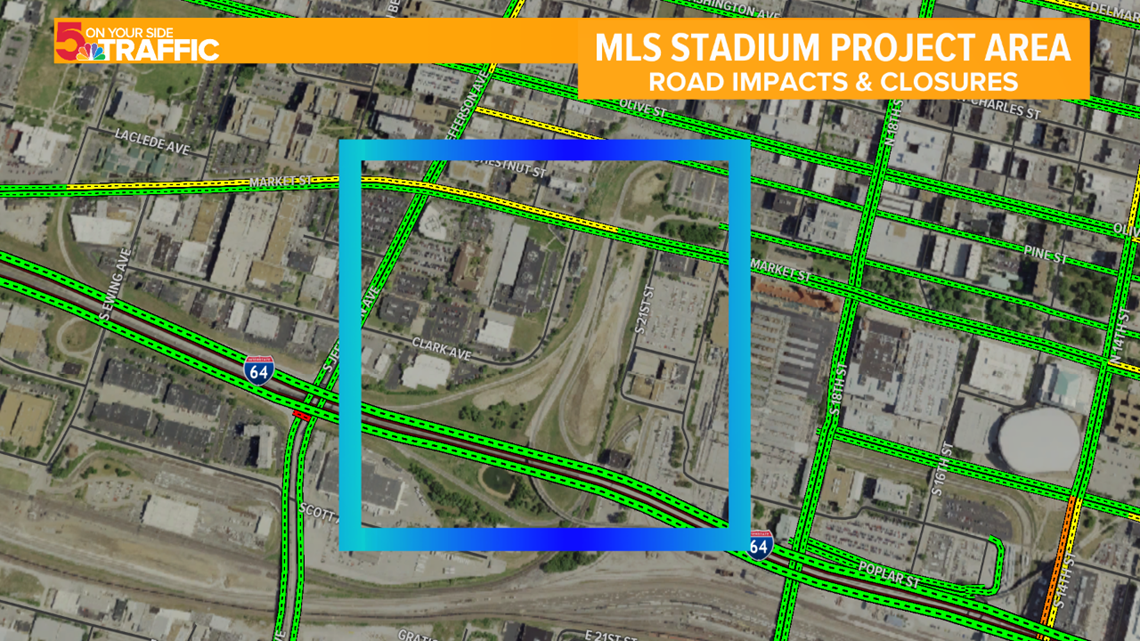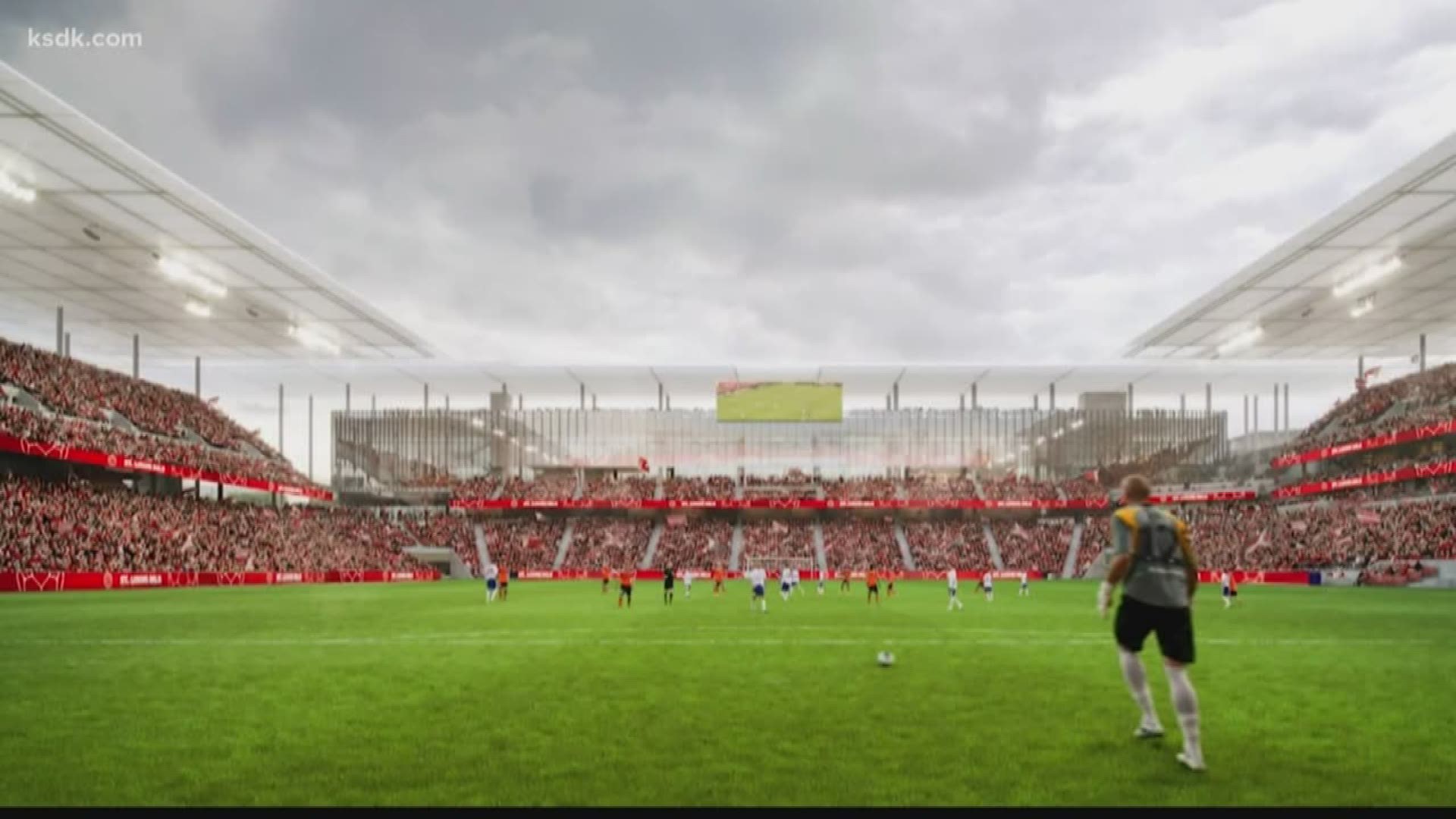ST. LOUIS — There are a few hints of construction at the planned MLS stadium site in St. Louis, but in order for the development to happen, the city has to approve the deal with the MLS ownership group.
Board Of Alderman President Lewis Reed introduced that legislation Friday.
Board Bill 215 authorizes the Master Redevelopment Agreement and approves it under Urban Redevelopment Corporation Law. Board Bill 216 approves the plan under LCRA Law.
The bills need approval so the plan can receive a 25-year partial tax abatement on improvements made to the property.
"It's not like this thing landed just today. We set up the framework for it over a year ago, and we've been working on it and refining it the whole time," Reed said.
"We've been close to the finish line, but we finally have the documents in order," said Alderman Christine Ingrassia, who is a co-sponsor of the bills.
In those documents, we learned what tickets are expected to cost.
The first year, general admission seats will average $34.50.
If you want a suite seat, the base price will be $50, plus an additional charge of $112.50 per seat for fees and amenities.
"If you do not attend a game, you don't pay," Reed said.
Reed said St. Louis taxpayers will contribute only through in-stadium purchases.
But another piece of funding formula is still up in the air: the state's tax incentives. In December, the state of Missouri told the ownership group of St. Louis' new MLS team that it wouldn't provide $30 million in tax credits for the stadium like originally promised.
"We need the state to do their part on this, and we're going to continue to work on this to get them to step up to the plate and honor their original agreement," Reed said.
The bills introduced Friday will now head to the HUD committee and then back to the board of aldermen for debate. The legislation's sponsors expect the bills to pass and head to the mayor in about a month.
The team's stadium was originally planned south of Market Street and west of Union Station, but now the growing development site plans for an office and training facility just south of Market Street and the 22,500-seat stadium north of Market.



